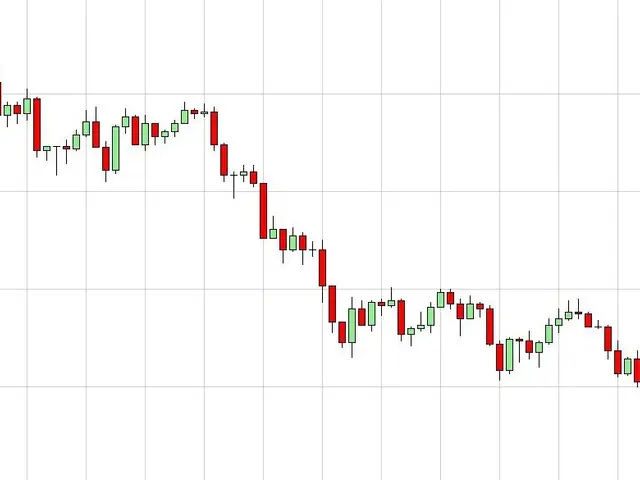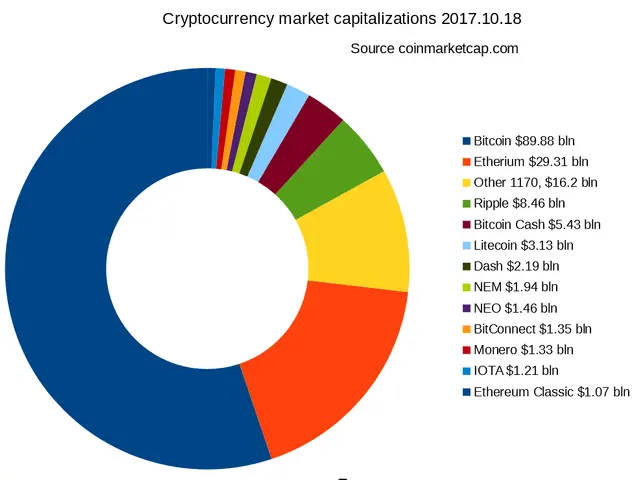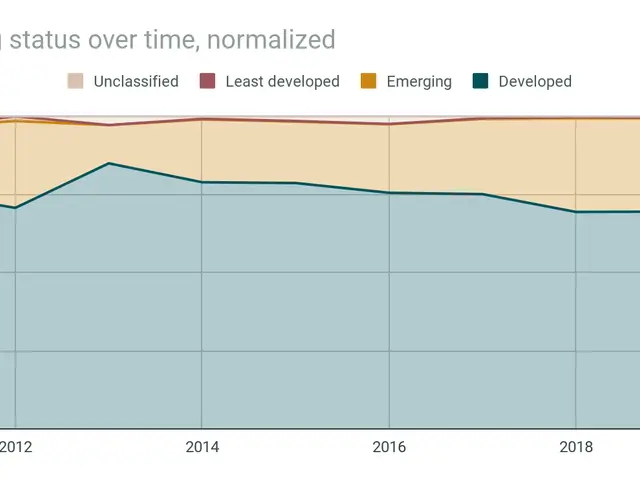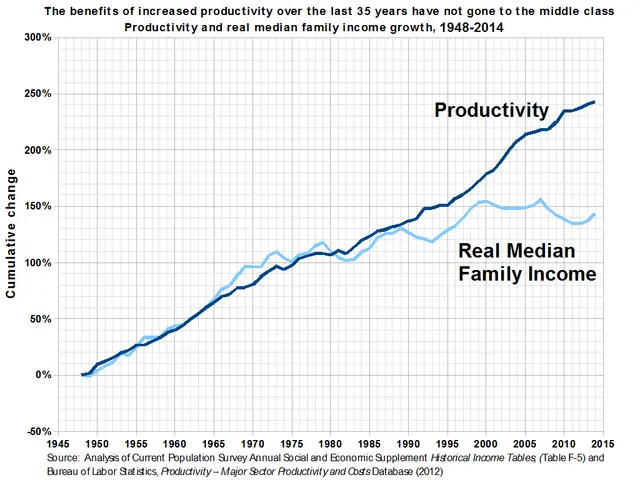Markets are predicted to find equilibrium following a readjustment of investor assumptions, according to Goldman Sachs CEO's insights.
Chatter around 2025's M&A landscape reveals a hint of optimism, tinged with a sprinkle of doubt due to policy uncertainties and geopolitical factors. Let's delve into the key trends shaping this dynamic scene:
Sector Shifts and Growth Drivers
- Tech domination: In 2024, non-tech firms snapping up tech companies accounted for 12% of total M&A volumes (a shift from the historical 7%), showcasing a growing emphasis on AI and digital capabilities.
- Mega-deals on the rise: Deals worth $10 billion or more skyrocketed by 26% globally in 2024, with a 43% surge in EMEA – a surge that's expected to intensify in 2025 across tech, healthcare, and financials.
- Private equity's growing influence: With a mountain of private equity capital, enhanced deal activity is being propelled, as exits and partnerships become strategic priorities.
Regulatory Landscape
- Relaxed scrutiny: As we approach a potential easing of regulatory norms (particularly in Europe and post-elections), pent-up demand could be unleashed. Yet, new U.S. tariffs under Trump present challenges for cross-border deals.
- CEO confidence: Historically, merger volumes surge 101% on average during second-term presidencies due to policy predictability. While Trump's possible return introduces trade policy uncertainty, his perceived deregulatory stance could mitigate concerns for domestic deals.
Banking Sector Evolution
- Regional consolidation: Narrowing deposit spreads and improved valuations (soaring 30% in 2024) are driving regional bank M&A, with asset sales possibly being used to fund digital modernization.
- AI and cloud investment: Over 75% of banks are ramping up AI and cloud investments, potentially triggering a surge in tech-centric acquisitions.
The intricate dance between private equity funds, AI-driven cognitive thinking, and policy predictions is likely to determine whether we'll see 2025 meeting its cautiously optimistic projections. As we journey further into the year, mid-market activity is predicted to pick up pace as interest rates stabilize and election outcomes crystallize. Let's hope for a lively M&A ball!
[1] https://www.acc.com/media-center/articles/2024/ey-m-a-outlook-2025-cautious-optimism-emerges-amid-policy-uncertainty-reshaping-landscape[2] https://www.statista.com/statistics/1168743/us-bank-m-a-valuations-over-time/[3] https://www.pwc.com/gx/en/services/deals/restructuring/mergers-acquisitions/mergers-acquisitions-2025-predictions.html[4] https://www.bna.com/mid-market-activity-volatility-2025-n90502449556/[5] https://www.deloitte.com/us/en/insights/industry/private-equity/2025-private-equity-outlook.html
- The growing emphasis on AI and digital capabilities in business has influenced the increase in non-tech firms purchasing tech companies, accounting for 12% of total M&A volumes in 2024.
- Despite the optimistic outlook towards mergers and acquisitions (M&A) in 2025, policy uncertainties and geopolitical factors have led to uncertainty in the M&A landscape.
- Mega-deals worth $10 billion or more have surged globally by 26% in 2024, indicating a trend expected to intensify in finance, tech, healthcare, and financial services sectors in 2025.
- With a substantial amount of private equity capital, private equity funds are propelling enhanced deal activity, making exits and partnerships strategic priorities.
- As global trade policies become volatile, unfavorable trade policies under Trump pose challenges to cross-border deals, even with the economic growth and potential policy predictability during second-term presidencies.
- Wang, an investor, might be considering investments in the banking sector, where regional consolidation is being driven by narrowing deposit spreads and improved valuations, as well as an increase in AI and cloud investments.







